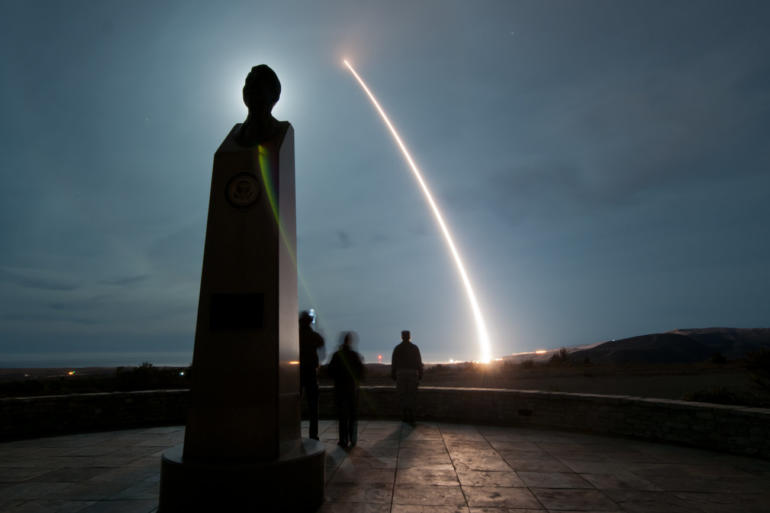Podcast: Play in new window | Download (Duration: 19:41 — 27.1MB) | Embed
Subscribe: Apple Podcasts | Spotify | TuneIn | RSS | More
In 1987, towards the end of the Cold War, U.S. President Reagan and Soviet General Secretary Gorbachev shocked the world when they signed the Intermediate-Range Nuclear Forces Treaty – also known as INF. The treaty banned the two nations’ from possessing nuclear and non-nuclear, short and medium range missiles.
It was widely regarded as a right step in stemming the spread – and threat – of nuclear weapons worldwide.
But in February 2019, the Trump administration formally suspended the INF Treaty, and Russia immediately followed suit. By late August, both countries had formally withdrawn – and Russia announced it was resuming production of missiles previously banned under the treaty.
These moves by both the U.S. and Russia has raised concerns that the world may be heading into a new – and perhaps more dangerous – nuclear arms race.
With us to discuss the INF Treaty, and modern challenges with the spread of nuclear weapons, is Kingston Reif. He’s the Director for Disarmament and Threat Reduction Policy at the Arms Control Association.
 CGTN America
CGTN America
 A Minuteman III intercontinental ballistic missile can hit almost any target on earth … but only if it flies through Russian airspace. This unarmed test version was launched from Vandenberg Air Force Base in California.
(Tech Sgt. Vincent Mouzon/U.S. Air Force)
A Minuteman III intercontinental ballistic missile can hit almost any target on earth … but only if it flies through Russian airspace. This unarmed test version was launched from Vandenberg Air Force Base in California.
(Tech Sgt. Vincent Mouzon/U.S. Air Force)
